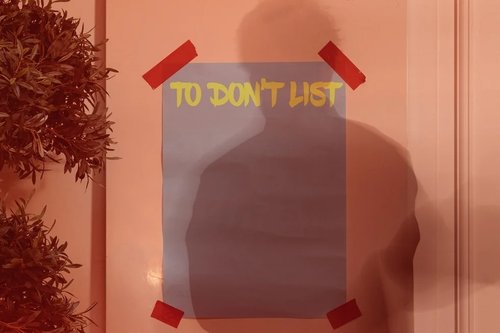Overcoming the invisible foe: Imposter syndrome in job hunting
Jun 27, 2023
6 mins


Senior Editor at Welcome to the Jungle
Have you ever felt like a fraud, waiting for someone to expose you as unqualified or unfit for your role? This unsettling feeling, known as imposter syndrome, is more common than you might think, especially among job seekers. It’s a psychological pattern that causes people to doubt themselves—their skills, talents, or accomplishments. Sufferers experience a persistent and often crippling fear of being “exposed” or “found out.”
Navigating the job market is challenging enough without the added pressure of self-doubt and apprehension. Yet, many of us grapple with these feelings, hindering our progress and affecting our mental well-being. With the help of leadership expert Ginny Clarke, we delve into the complexities of imposter syndrome, its impact on job hunting, and provide practical strategies to overcome this invisible barrier, turning fear into self-assurance on your career journey.
Understanding imposter syndrome
Imposter syndrome, a term coined by clinical psychologists Dr. Pauline Clance and Dr. Suzanne Imes in 1978, is essentially a psychological phenomenon that reflects a belief that you’re an inadequate and incompetent failure, despite evidence proving your skills, competence, and achievements. It represents an internal struggle with success and can lead to severe anxiety and self-doubt. According to a study conducted by InnovateMR, 65% of professionals have symptoms of imposter syndrome, with a whopping 75% of female executives suffering from it.
At its core, imposter syndrome is rooted in the fear of being exposed as a “fraud”. This feeling isn’t reserved for those in high-achieving positions; it’s widespread and can be found at every career level. “What it looks like is self-doubt. It’s the not speaking up. It’s the questioning and looking around and comparing yourself to everyone else and thinking, ‘Well, I don’t have that degree. I don’t have that job experience,’” Clarke explains. “It’s [focusing on] what you don’t have versus pausing to take stock of what makes you unique.” It’s also not limited by industry, age, or job status. From freshly minted graduates to seasoned executives, anyone can fall prey to this form of self-doubt.
Imposter syndrome on the job hunt
In the realm of job hunting, imposter syndrome might manifest itself in various ways. A common example is feeling underqualified for a job, despite meeting the criteria. Job hunters might pass up applying for jobs because they don’t meet 100% of the listed qualifications, even though most employers don’t expect such a perfect match. “What’s on your resume is not a predictor of your future success at all,” Clarke shares. She encourages job hunters to focus more on the competencies rather than checking all the boxes on a job description. “Competencies are skills plus knowledge plus ability. They’re the deconstructed elements of how you do something,” she explains. “Experience to me is important, but it’s less important than having the competencies.”
The impact of imposter syndrome on job hunters
Imposter syndrome can exert a profound influence on various aspects of the job-hunting process, ultimately hindering one’s career progress. It often begins with the job search itself, where individuals affected may self-select out of opportunities they are more than capable of fulfilling. They may limit themselves to positions they consider ‘safe’, bypassing roles that could lead to substantial growth.
During the interview
In job interviews, imposter syndrome can strike again, leading to self-deprecation and downplaying of achievements. Instead of confidently articulating their skills and experiences, sufferers may undersell themselves, leading potential employers to undervalue their competencies. This lack of confidence can unintentionally create a perception of being less qualified or competent than they truly are.
According to Clarke, imposter syndrome can often lead to job candidates reciting word-for-word what’s written on their resume, using it as sort of a safety net. “Tell the story of why you made certain decisions, why you’re passionate about these things,” she recommends. “I want to hear from you. I want to hear what’s not on [your resume].”
During salary negotiations
When it comes to salary negotiations, imposter syndrome may discourage individuals from advocating for a salary proportional to their skills and experience. Fearing that asking for more would make them appear ungrateful or greedy, they may accept the first offer, leaving money and benefits on the table.
Clarke shares that going into a negotiation while struggling with imposter syndrome is a lose-lose situation. “It’s over,” she says. “If you’re going in apologizing, basically, you’re going to get less money.” She highlights that if you’ve managed to land an interview, there’s a reason. “Accept the fact that they consider you to be good enough to hire. You should be asking for the highest possible salary that you can get. Assume that you’re better than everybody else. Talk yourself into that. Lie to yourself the first few times until you believe it,” she encourages. You’re better off aiming high and settling somewhere lower on the salary scale than not asking for enough and regretting it later, Clarke explains.
Tips for managing imposter syndrome during job hunting
Imposter syndrome doesn’t have to take the driver’s seat during your job hunt. There are several effective strategies and techniques that can help you manage self-doubt, boost self-confidence, and promote mental wellness.
Cognitive behavioral strategies for self-doubt
Cognitive-behavioral strategies are valuable tools to combat imposter syndrome. These techniques involve identifying and challenging negative thought patterns, and consciously replacing them with positive affirmations. Begin by acknowledging your imposter feelings when they occur. Rather than fighting them, recognize them as signs that you’re pushing your comfort zone, which is often where growth occurs. Try to reframe your thoughts: if you find yourself thinking, “I don’t belong here,” consider instead, “I’m learning and growing.”
Techniques to boost self-confidence
Boosting self-confidence is a vital part of managing imposter syndrome. One effective method is creating an “achievements inventory”. This is a comprehensive list of your accomplishments, skills, and strengths. Regularly reviewing this inventory can serve as a concrete reminder of your abilities and success.
In addition to this, practicing positive affirmation can be immensely beneficial. By regularly repeating phrases such as “I am competent” or “I believe in my skills,” you can help to reinforce a positive self-perception. Visualization, imagining yourself successfully navigating situations that trigger imposter feelings, can also fortify your self-confidence.
Clarke also advises practicing everything you want to highlight in an interview beforehand. “Get a buddy, get one of your more assertive friends to talk you up and to do some role-playing with you. Get more comfortable talking about yourself and asking saying the words,” she says. If the interview is going to be the first time you speak these words, it’s no wonder you’re going to seize up and not say anything!”
The role of self-care in job hunting
Lastly, but equally important, is self-care. Job hunting can be a stressful process, and maintaining good mental health during this time is crucial. Ensure you’re taking regular breaks, getting physical exercise, eating healthily, and getting plenty of rest. Make time for activities you enjoy to help alleviate stress and avoid burnout.
Consider practices such as mindfulness and meditation, which can help maintain a calm, focused mind. If imposter feelings become overwhelming, seeking professional help from a mental health counselor or a career coach can provide valuable guidance and strategies.
Remember, everyone experiences self-doubt at times, especially in high-pressure situations like job hunting. It’s perfectly normal. Applying these techniques allows you to manage imposter syndrome, maintain a healthy mindset, and confidently chase your career aspirations.
Seeking professional help
While self-help strategies can be extremely effective in managing imposter syndrome, there are times when it may be beneficial to seek professional help. This assistance can come in the form of a psychologist, career coach, or other professional, and can provide valuable tools and strategies to overcome imposter feelings.
When imposter feelings become overwhelming and impact your ability to function effectively in your job hunt or in other areas of life, it might be time to consider professional help. How do you know when you’ve reached that point? “If it’s paralyzing you, if you can’t move forward, if you’re just stuck,” according to Clarke. She encourages job hunters to get the help they need if their imposter syndrome becomes debilitating. This could manifest as anxiety, depression, or other negative emotional states. In these situations, the insight and guidance of a mental health professional can be invaluable.
Crushing the imposter within: key strategies for job hunters
Embarking on a job hunt is an adventure, but the sneaky villain named imposter syndrome can make it feel more like a treacherous expedition. Here’s your cheat sheet for beating this invisible foe:
- Grasp the idea that imposter syndrome, the nagging self-doubt despite obvious success, is a universal psychological experience, not your solitary fight.
- Recognize how this syndrome acts as a roadblock in your job hunt – stopping you from applying for well-suited jobs, underplaying your worth in interviews, and muffling your voice in salary negotiations.
- Employ cognitive behavioral techniques to catch and swap those self-doubt whispers with the empowering language of positive affirmations.
- Ignite your self-confidence by keeping an inventory of your achievements, honing your interview skills with a trusty partner, and basking in the power of visualization.
- Understand that self-care isn’t a luxury but a necessity. Bring mindfulness, healthy living, and regular exercise into your routine to keep stress at bay.
- Don’t shy away from seeking professional help when the imposter within becomes overwhelming. Psychologists and career coaches are your allies, ready with the arsenal to help you overcome these intrusive feelings.
Remember, even the most daunting expedition becomes an exciting journey with the right map and toolkit. Overcoming imposter syndrome is no different. Let these insights be your compass, leading you towards a confident job hunt and a rewarding career.
Photo: Welcome to the Jungle
Follow Welcome to the Jungle on Facebook, LinkedIn, and Instagram, and subscribe to our newsletter to get our latest articles every day!

More inspiration: Applying for jobs

Should you job hunt over the holidays? Tips to beat the new year rush
Searching for a new job to start fresh in 2025? The holiday season might be the right time for you to start the process.
Dec 09, 2024

Introverts & extroverts: Strategies to ace your interview
Job interviews can be tough, whether you're a social butterfly or a quieter introvert. The key to standing out is being yourself.
Aug 20, 2024

Should you be scared of the ghost job trend?
Have you ever been ignored after applying for a job? You may be a victim of the ghost job trend.
Jun 12, 2024

Lost in translation: Decoding bizarre job descriptions
“Candidates with no sense of humor need not apply.” Um …
Jan 25, 2024

Nailing your job search: Writing a to-don’t list for success
Don’t want this, don’t want that … Writing down things you want to avoid in a new job could be your job-hunting key.
Jan 18, 2024
The newsletter that does the job
Want to keep up with the latest articles? Twice a week you can receive stories, jobs, and tips in your inbox.

Looking for your next job?
Over 200,000 people have found a job with Welcome to the Jungle.
Explore jobs